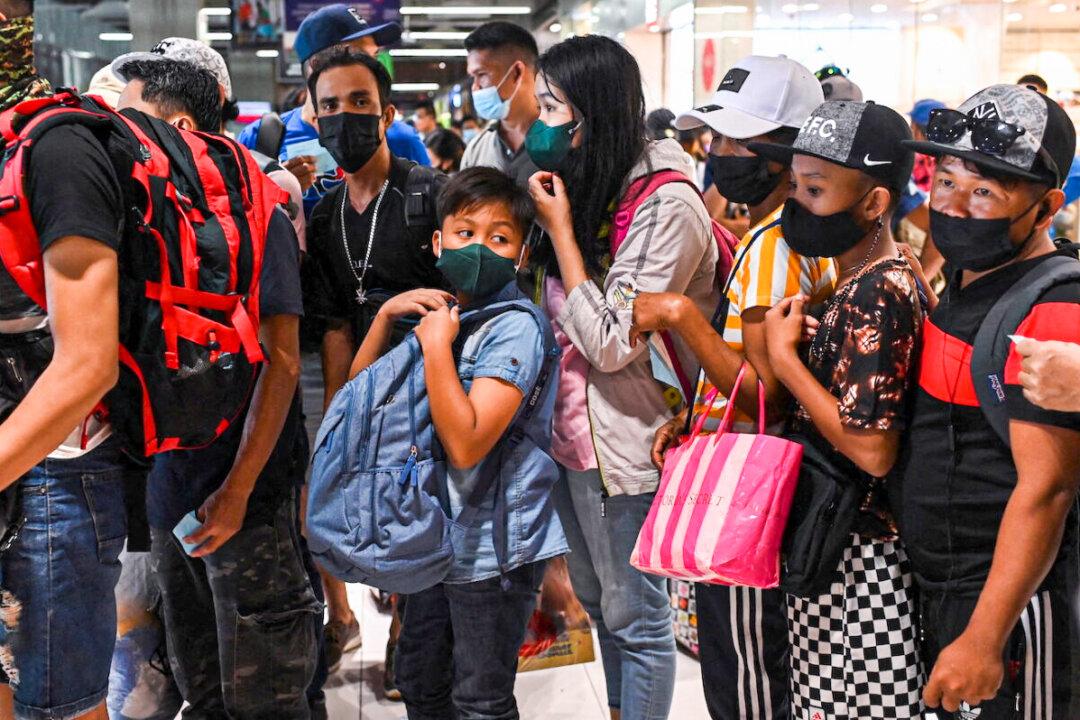The Philippine government is no longer mandating the use of masks outdoors due to a decline in COVID-19 cases, but social distancing and other public health measures will remain in place, government officials said.
President Ferdinand Marcos Jr. on Monday approved an executive order to allow the voluntary wearing of masks outdoors, particularly in “open spaces and non-crowded areas with good ventilation,” press secretary Trixie Cruz-Angeles said.





